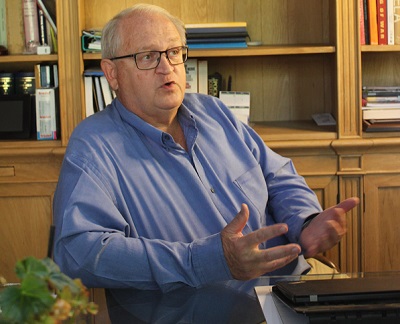

Director: Corporate-911
There is a consensus that 2020-2021 was the most significant period for the business rescue profession. South African Airways was placed into business rescue and served as a case study as, the objectives of the Companies Act needed to be balanced with the objectives of the Public Finances Management Act. This was followed by the COVID-19 Pandemic, which placed many companies into business rescue and led to its fair share of liquidations and is still the underlying cause of the financial distress that many companies still experience today.
The current disruptive forces in the business environment are far more severe and could significantly impact the South African economy.
As we reflect on the progress our businesses have made since COVID and how the last year has proved to be even more challenging I am reminded of what was recently said by a CNN political analyst. Her critical contribution was that while everybody was worrying about a potential second Term for President Trump or for President Biden the real concern was the lack of real conversations about the things that matter.
As you reflect on the progress of your career, profession or business in the dying weeks of 2023, what are the critical conversations you need to have to shape 2024.
The Energy Crises
Probably the most significant economic event of the last ten years has been the ongoing energy crisis in South Africa. It is the leading cause of distress in businesses, it is fraught with corruption and State capture. It reflects the terrible outcomes of cadre deployment as opposed to the most suitable experienced people for the job. It touches every South Africans perception of progress. From those seeking their first connection to the grid, to those who have simply applied their wealth to going off grid. It has increased personal debt capacity as we have borrowed to afford the solar and other solutions and constrained our discretionary spending.
One cannot underestimate the impact of the Energy Crisis. Before South Africa even had to deal with the COVID Crisis, the Energy Crisis started to intensify with increased levels of loadshedding which saw companies face up to eight hours a day without power.
What are the financial implications of this? According to an article on Turnaround Talk, the Energy Crisis costs the economy R900 million/day when the country faces Stage 6 power cuts. The South African Reserve Bank points out that rolling blackouts lasting 6-12 hours daily (so-called Stage 3 and Stage 6 outages) detract between R204 million and R899 million from the economy.

Image By: Canva
In another Turnaround Talk article, a survey by Sakeliga (in August 2022), pointed out the impact this practice has on small and medium-sized businesses (SMEs). The survey showed that 35% of respondents were still totally dependent on Eskom power, compared with 60% three years ago. The survey pointed out that about 62% of the respondents were mostly dependent on Eskom (75% previously), and about 20% were completely independent of Eskom (similar to previous statistics. Even though solar is becoming a significant coping mechanism in South Africa, many companies still depend on Eskom. Loadshedding impacted a plastics manufacturing business in Pretoria so severely that it reduced its productivity by 50% and increased the scrap material it had to throw away.
And it is not only companies that are becoming sacrificial lambs to Government inefficiency. Consumers in nearly 80 municipalities had to cough up more than R1.6 billion to repair infrastructure damaged and vandalised in more than 100 incidents per day during loadshedding.
Additionally, at 79 of South Africa’s 257 municipalities, load shedding contributed to revenue losses in excess of R21 billion per annum.
Despite many promises that Load Shedding would be insignificant by the end of 2023 we are sitting at stage 4 as I write this
The Logistics Crisis
Recent reports indicate that South Africa’s Logistics Crisis costs the company nearly R1 billion/day.
What impact is this having on companies? In September, Turnaround Talk published an article which points out that Transnet’s inability to transport coal to the Richards Bay Coal Terminal could result in an estimated job loss of 35,000 in the coal mining sector. Following this article, Glencore and Seriti said they would enter Section 189 discussions.
Another article points out that the port of Cape Town exports 35% of South Africa’s agricultural produce, and this year, good winter rains and better harvests mean farmers are expecting a 21% increase in production. However, because of the Logistics Crisis, UK and European retailers no longer consider South Africa a reliable fruit supplier and are looking elsewhere. Decades of market development and client relations wiped out by insufficient planning and gross incompetence.
Finally, media reports indicate that Durban and Cape Town ports face significant infrastructure challenges. The Durban port has 70,000 stuck goods containers, with a 21-day waiting period before offloading. That results in direct costs of R98 million ($5.2 million) a day when congestion surcharges are added.
The knock-on effect on the whole business ecosystem cannot be overstated. Coal truck convoys that resemble scenes from a Mad Max movie are commonplace on the routes to the Coast. These will only worsen as the Logistics Crisis persists.
Legal troubles
You are mistaken if you think the troubles assailing the Business Rescue profession ended with the energy and logistics crises, you are mistaken. The misinterpretation of the Companies Act in the Wescoal matter set a dangerous precedent for the profession.
A Turnaround Talk article points out that the primary focus of the dispute lies in the interpretation of Chapter 6 of the Companies Act, which deals with business rescue. Crucially, the applicants contested the inclusion of voices from Mashwayi Projects (Pty) Ltd, a post-commencement creditor, arguing that such creditors should not have voting rights in business rescue proceedings.

Image By: Canva
The court’s judgment endorsed this view, asserting that only pre-commencement creditors should have voting rights. The judgment raises substantial concerns about the commercial implications of excluding post-commencement creditors from such crucial decision-making processes, especially in business rescue financing.
The real issue is that it will force the refinancing to become dependent of the successful rescue plan been passed before bridging finance becomes available. Jumping financial distress without post commencement funding before a plan is developed became almost impossible.
Other crises
While the focus of this discussion is on business and professionals let us not forget the massive unemployment crisis, rampant crime, the dependency on social transfers and falling collections of taxes and municipal fees also driving the chaos we call South Africa today.
We must ask whether business, civil society, political parties and the Government are having relevant conversations that matter.
Those parties that focus on opportunities for work, helping citizens lead a dignified life, and safety of its citizens may well start conversations that matter. If we allow the looming election to be about fear, anger, disappointment and the loss of hope we will miss an opportunity.
I hope that across all our activities this festive season we spare time to have the right conversations about our businesses, our hopes, and fears and that we return committed to building a better country for all who live here and not the effete ruling class we appear to be stuck with.
Have a blessed Festive Season, recharge, and reinvigorate yourselves and look forward to the year that will set the future direction of South Africa for at least the next decade. We are in for another consequential year in 2024.




